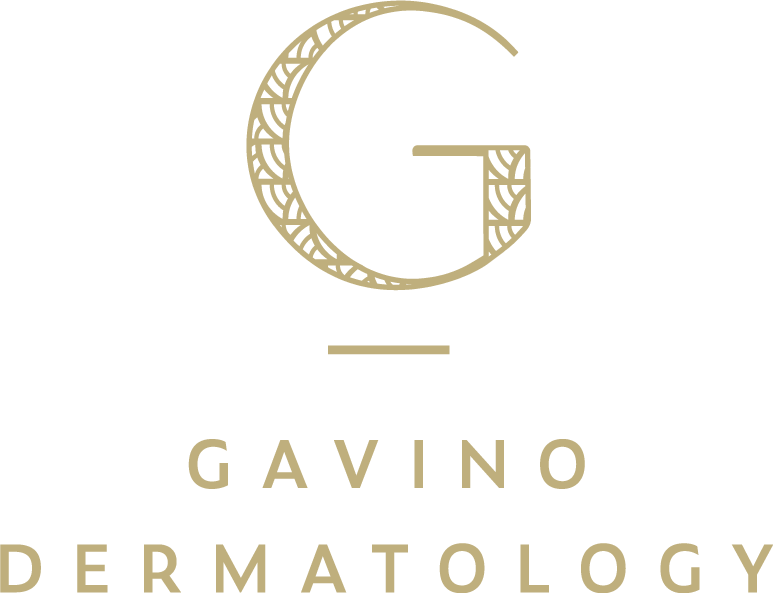At Gavino Dermatology, we highly recommend regular melanoma screenings for our patients, especially those with a high risk of skin cancer. Early detection is key in effectively treating skin cancer. Our board-certified dermatologist can keep your skin healthy and safe, and if needed curate a personalized plan for melanoma treatment in Leander.
Early Diagnosis Is Crucial
Early diagnosis of melanoma is crucial in ensuring successful treatment. When caught in its early stages, melanoma can often be removed with a simple surgery. However, if left untreated, it can quickly spread to other parts of the body, making treatment much more difficult. By scheduling regular screenings at Gavino Dermatology, you can rest assured that any potential melanoma will be caught and treated at the earliest stage possible.

What is Melanoma?
Melanoma is a type of skin cancer that develops in the cells that produce pigment. It can spread rapidly to other parts of the body if not treated early. Melanoma can appear as a new mole or change in an existing mole and can be shades of brown and black. It can also appear as a red, white, or blue lesion. It’s important to be aware of changes in your skin and to have any suspicious moles evaluated by your dermatologist, that way, if needed, he can curate a plan for melanoma treatment in Leander.
Symptoms of Melanoma:
- A new mole or change in an existing mole
- A mole that is asymmetrical with irregular borders
- A mole that is various shades of brown or black
- A red, white, or blue lesion
- A mole that is larger than the size of a pencil eraser (more than 6mm)
- A mole that itches, bleeds, or crusts
- A mole that changes in size, shape, or color
- A mole that appears on the palms of the hands, soles of the feet, or under the nails
- A mole that appears on the scalp, face, or neckPlease note that these symptoms don’t always indicate melanoma, but if you notice these changes in your skin, please have them evaluated by a dermatologist. At Gavino Dermatology, we offer comprehensive screenings to identify and diagnose melanoma.
Causes of Melanoma
Melanoma is caused by the uncontrolled growth of pigment-producing cells in the skin. The exact cause of this uncontrolled growth is not fully understood, but several factors can increase the risk. Ultraviolet (UV) radiation from the sun or tanning beds is a major cause of melanoma. Other factors that increase the risk of melanoma include fair skin, a history of sunburns, a family history of melanoma, and having many moles or atypical moles. To learn more about melanoma treatment in Leander contact our office for an appointment today.

Comprehensive Melanoma Screening
A comprehensive melanoma screening involves a thorough examination of your skin by our experienced dermatologist. The screening will begin with a discussion of your medical history, including any previous skin conditions or treatments, and any known risk factors for melanoma. The dermatologist will examine your skin, looking for any suspicious moles or other skin lesions. During the examination, the dermatologist will pay close attention to the areas most commonly affected by melanoma, such as the scalp, face, ears, neck, chest, and back.
The dermatologist may use a dermatoscope, a specialized tool that magnifies the mole and allows the dermatologist to see the mole’s structure more clearly. If any suspicious moles or lesions are found during the screening, the dermatologist may perform a biopsy to remove a small sample of the tissue for further examination. The screening takes about 30 minutes to an hour. The biopsy sample is sent to a laboratory for testing, following which you may receive a diagnosis within a week or two. If the results should appear as positive for melanoma, our dermatologist will contact you to work on a plan for melanoma treatment in Leander.

Risk Factors for Melanoma:
- Family history of melanoma
- Personal history of melanoma or non-melanoma skin cancer
- Having many moles or atypical moles
- Fair skin and light hair
- History of sunburns or excessive UV exposure
- Living in areas with high UV index
- Weakened immune system
- Taking certain medications that increase skin sensitivity to UV light
- Having a history of tanning bed use
- Age, as the risk increases as people get older
Skin Screenings
It’s important to be aware of these risk factors as they may increase the likelihood of developing melanoma. However, even if you don’t have the above risk factors, you can still develop melanoma. Regular skin screenings and self-examinations can help detect the disease in its early stages when it’s most treatable. At Gavino Dermatology, we highly recommend regular melanoma screenings for patients with a high risk of melanoma.
Optimal Frequency for Melanoma Screening
The optimal frequency for melanoma screening depends on your risk factors and skin type. For individuals with a high risk of melanoma, such as those with a history of melanoma, many moles, or a family history of the disease, a screening may be recommended every 3-6 months. For individuals with a lower risk, a screening every 1-2 years may be sufficient. Dr. Gavino will recommend the optimal screening frequency after considering your risk factor, this way he can get a head start on a plan for melanoma treatment in Leander if that becomes needed.

Schedule an Appointment
Gavino Dermatology is a comprehensive dermatology practice specializing in cutting-edge treatments and diagnostic methods. Our quadruple-board-certified dermatologist carefully examines your skin, discusses your risk factors and symptoms, and offers thorough screenings to help you identify melanoma at the earliest stage possible for prompt treatment. Please schedule an appointment for melanoma screening in Leander.

